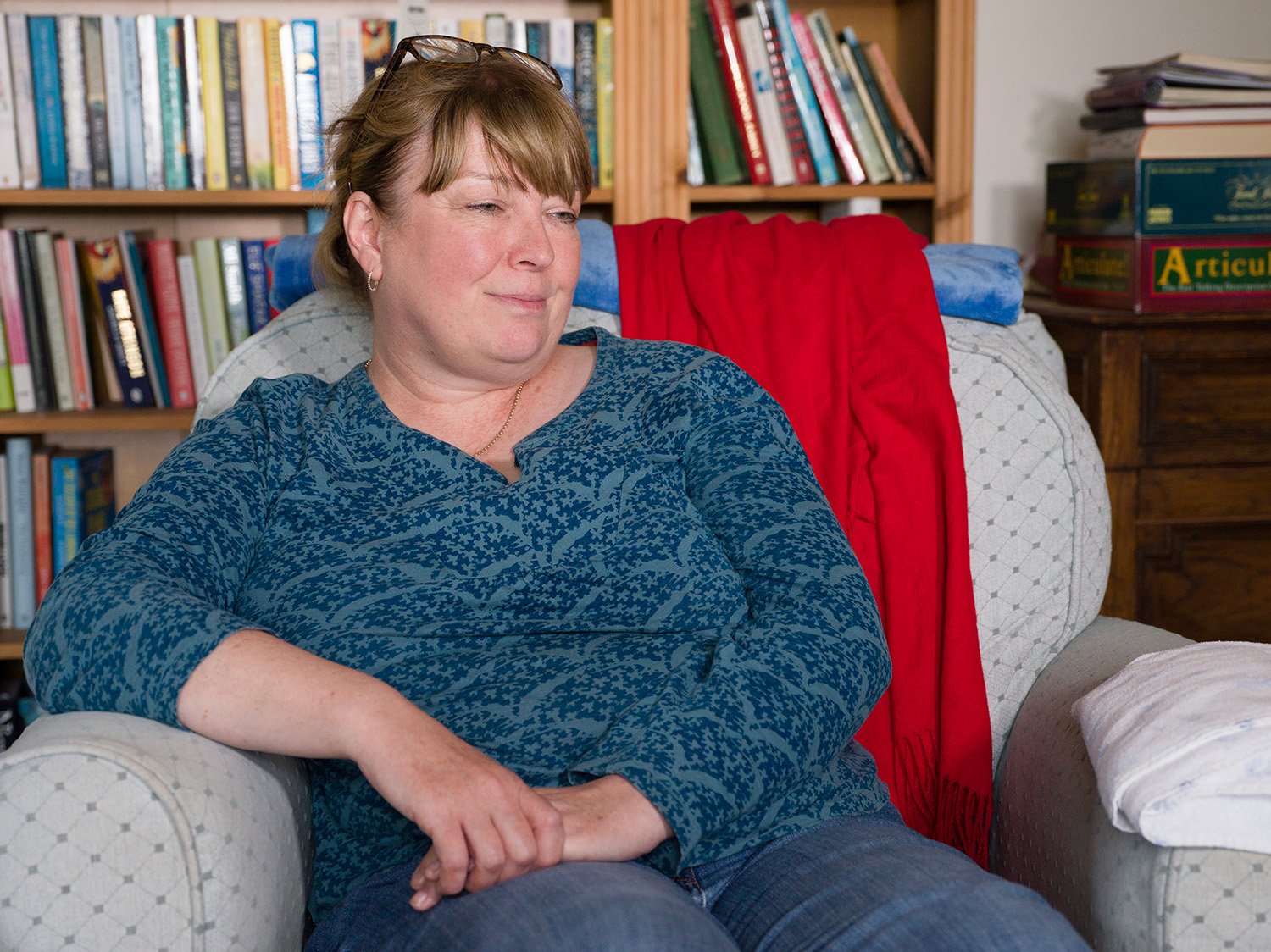What matters most?
Emma
Emma was raised in Powys and lived on a small holding property designed and built by her parents. She has lots of fond memories of living there with her family. Her dad died in 2012 and her mum had been living there alone until her death in April 2023.
“My mum was very intelligent. Very well read. She loved to read. She did an open university degree in psychology and then did a teacher training course. Eventually, she became a psychology lecturer at the local college. She was a quiet person, quite introverted and a very balanced person, thoughtful person.”
In 2020 during the pandemic, her mum was diagnosed with breast cancer. She needed a mastectomy, chemotherapy and radiotherapy, all of which she had to do alone. She did this bravely and things were going okay, she was getting on with life and her normal activities. “Mum was physically feeling okay until around October 2022 when she got a chest infection. She was feeling very tired and quite breathless and had lost her appetite and we couldn't understand why. She couldn't quite fight off this chest infection. By December, she had these horrendous pains in her legs. The doctor gave her some morphine because she was in so much pain very suddenly. They took some blood from her to be tested. They called her up that evening and said, ‘You've got to come into hospital now.’ She was diagnosed with acute myeloid leukaemia the next day.”
The diagnosis was a shock for them all. They had been told that it was life-limiting, even with treatment. “It was quite devastating because it was so out of the blue. She rapidly declined. She had several infections and was in and out of hospital from December to April. She passed away at home in April.”
When her mum was given the diagnosis Emma’s brother was with her at the hospital. They had thought maybe the breast cancer had returned, so to hear leukaemia was a massive shock. “I think it was quite a blunt delivery. My brother was like, sorry, what?’ Mum was literally given weeks to live very bluntly. It was a huge shock for us all.”
The way the diagnosis was given to her mum and brother made it difficult to comprehend fully. They had been in the hospital A&E all night and had various tests conducted before the consultant saw them. “The consultant came in and said who he was. He then said, ‘You've got this type of leukaemia, it's the worst kind you could have. Even with treatment, you've got weeks to live.’ Mum said it was a very grim room and it was just very blunt. There was no conversation preceding the diagnosis to get Mum's understanding or even if she wanted the news. I think it was quite traumatic for her going from later conversations with her. I think that delivery hampered her absorbing that information and processing it, she seemed a little bit stuck in the trauma of that.”
Emma believes that handling the diagnosis completely differently could have impacted the rest of her mum’s life. Understanding that the diagnosis was a shock no matter how it was delivered but with a bit more care it would have made a difference. “It's still going to be a shock, she’d gone from having some symptoms of chest infections to being in a lot of pain very acutely, but I certainly think that if she’d not been given it so bluntly, I think some of the information that came at the diagnosis, such as she didn't know anything about that type of leukaemia, or what the treatment options were because of the trauma from the initial delivery.”
This affected further out-patient appointments when they visited the consultant. Emma found herself asking a lot of questions to get the answers that her mum needed. “He seemed to just expect her to just absorb all of this information in hospital, being so acutely unwell, and then to make a decision about treatment options.” Each time they had an appointment it was like her mum was re-living the initial diagnosis.
The appointments were difficult and her mum disliked going. “One of the things that really bothered her was this consultant. I think maybe he wanted people to understand the severity of the diagnosis. Every time we went to see him, he would be really negative and say things like ‘If you get an infection, it'd be very serious.’ Over and over again, repeating ‘It's unlikely to do any good this treatment.’ It was very negative, even though she had a good response initially to some of the treatment, there wasn't much in the way of positives.”









